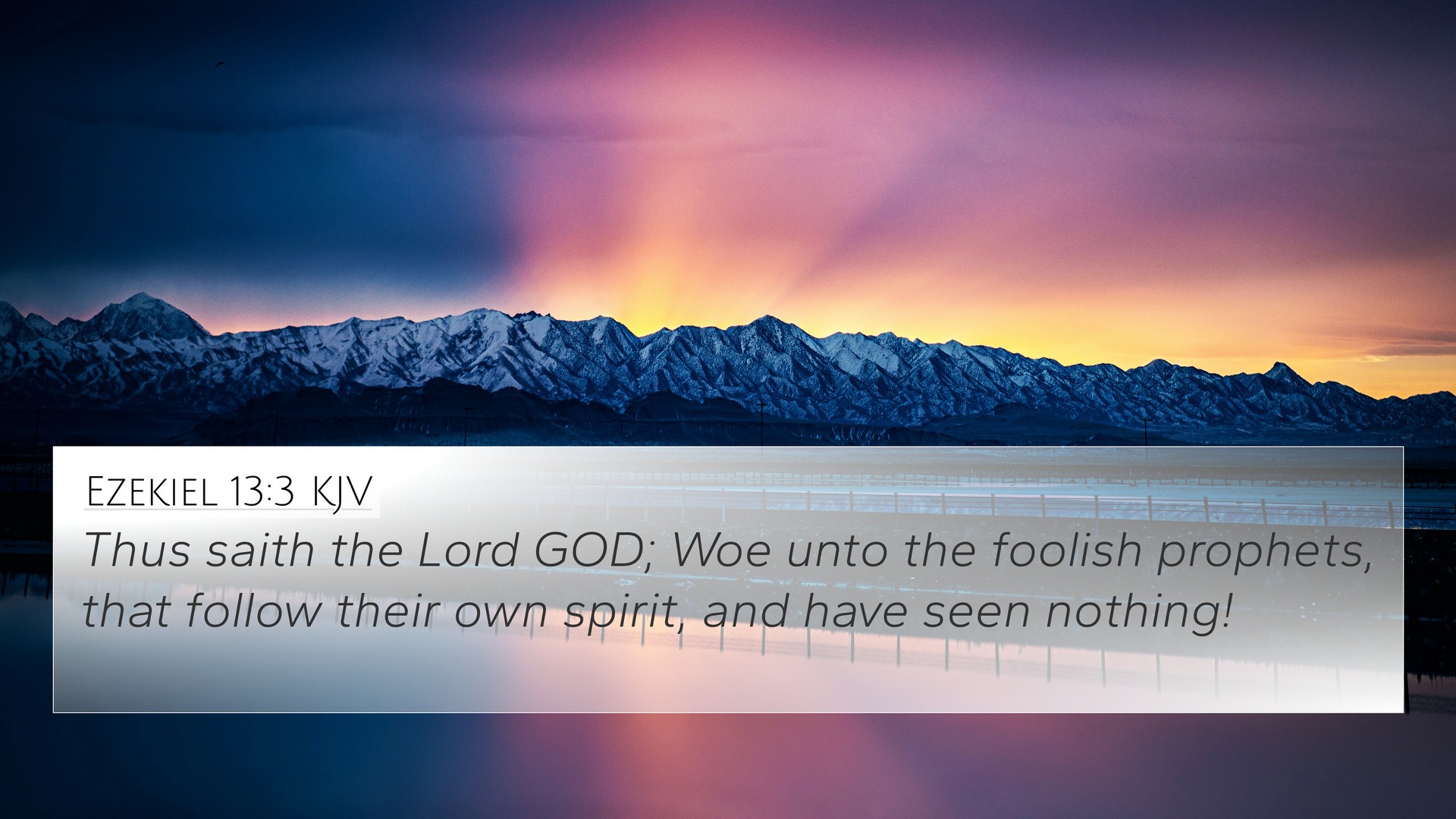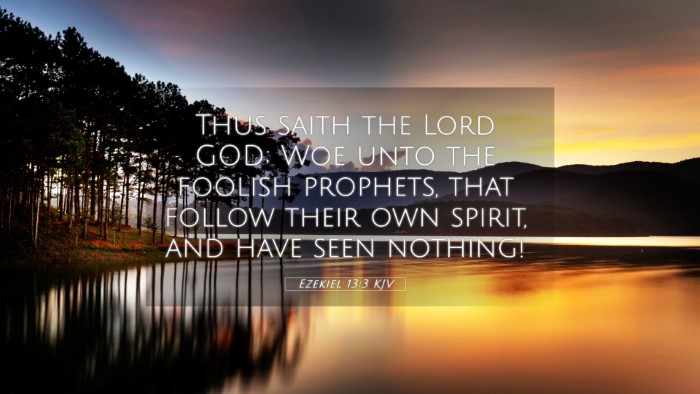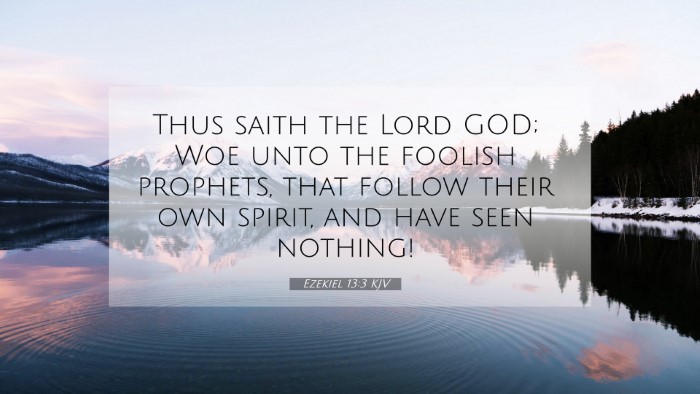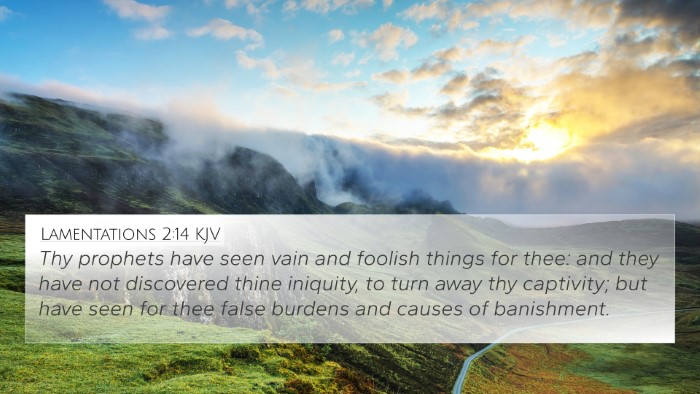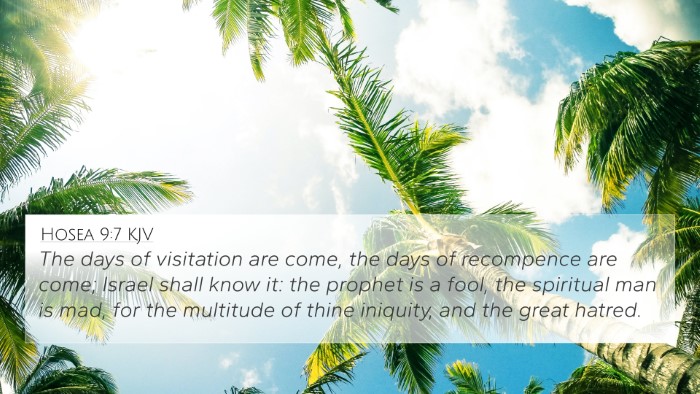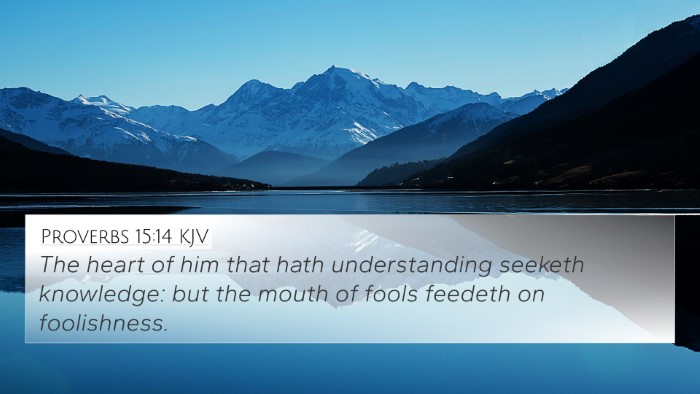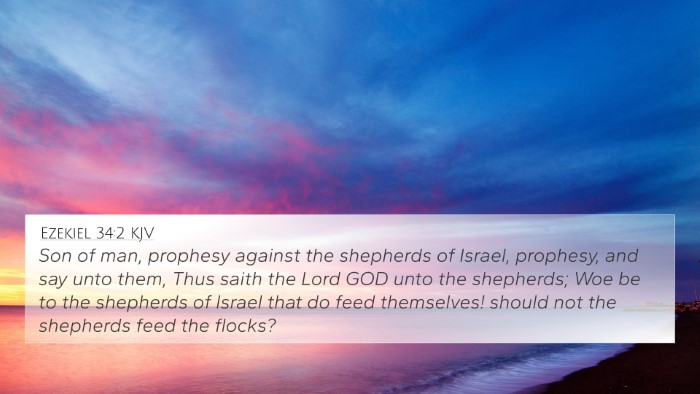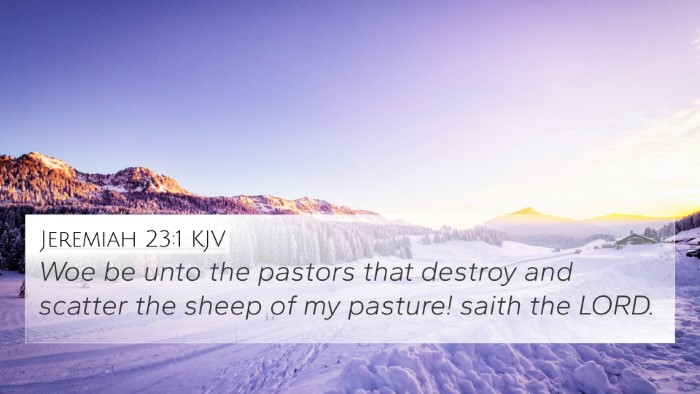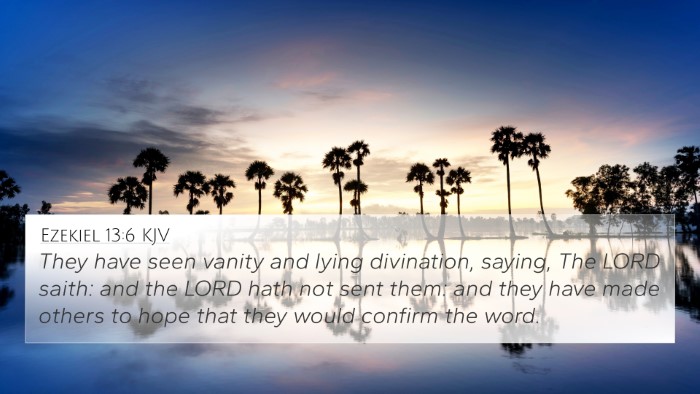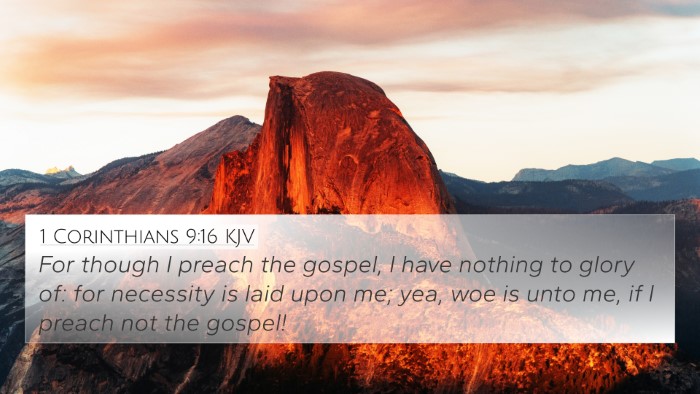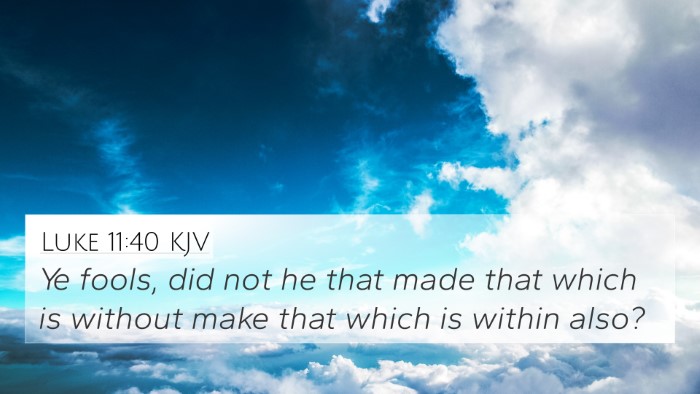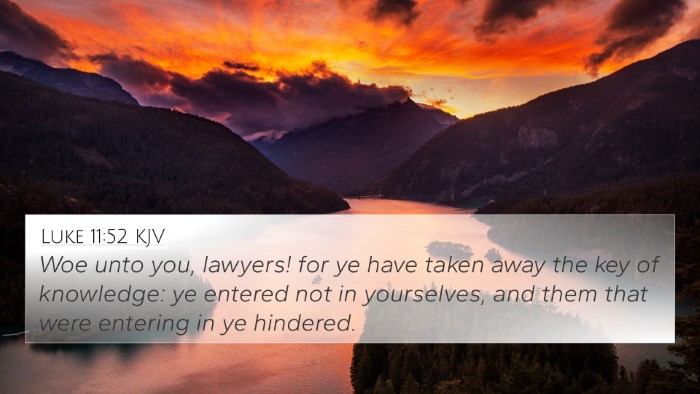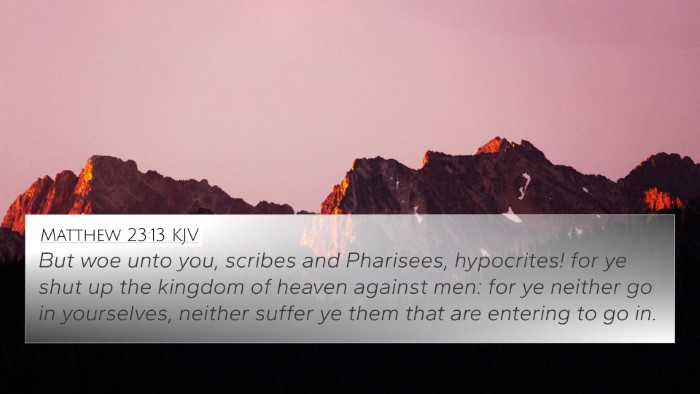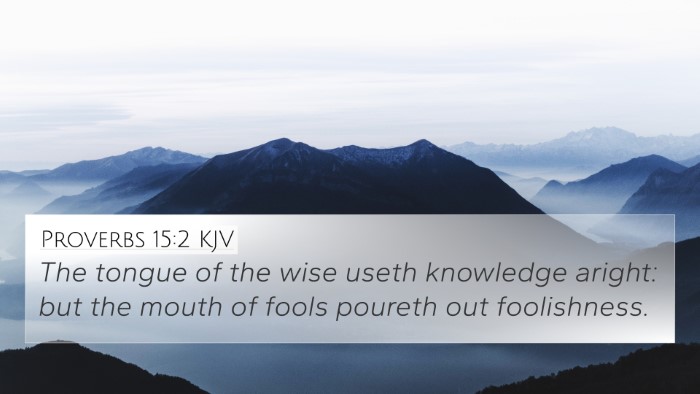Ezekiel 13:3 - Summary of Meaning and Interpretations
Ezekiel 13:3 states: "Thus saith the Lord God; Woe unto the foolish prophets, that follow their own spirit, and have seen nothing." This verse serves as a divine admonition against false prophets who deviate from God's truth.
Contextual Background
The Book of Ezekiel was written during the time of exile for the Israelites, providing prophecies and messages of judgment and restoration. The role of the prophet was crucial—acting as a mediator of God's will. In this verse, the prophet Ezekiel highlights the distinction between true prophets inspired by God and those who fabricate visions based on their own desires.
Insights from Public Domain Commentaries
Matthew Henry Commentary
Matthew Henry emphasizes that false prophets arise from an emotional or self-deceived disposition. He critiques their reliance on their own imaginations rather than being attuned to God’s revelation. This evaluation conveys a broader principle: the necessity of prophetic authenticity, stressing that true prophets are directed by divine inspiration.
Albert Barnes Commentary
Albert Barnes points out the dire warning encapsulated in the term "Woe!" which indicates impending judgment on such false prophets. Barnes identifies their principal fault as following "their own spirit," thus neglecting the commands of God. He calls for discernment among the people, urging them to recognize the stark contrast between the genuine and the spurious.
Adam Clarke Commentary
Adam Clarke delves into the psychological aspect of prophecy, explaining that these foolish prophets indulge in delusion, perceiving themselves as authorities without any divine commission. Clarke’s analysis underscores the danger of self-appointed leaders who mislead others, showing the importance of divine authority in prophetic ministry.
Key Themes and Lessons
- Divine Authority: True prophecy must align with God's will and revelation.
- Discernment: The importance of discerning genuine spiritual leadership from falsehood.
- Consequences of Deception: The accountability that false prophets face for misleading the people.
- Spiritual Integrity: Prophets must remain grounded in the truths of God, resisting personal impulses.
Bible Verse Cross-References
This verse can be linked to several other scriptural references that reinforce the themes of false prophecy and God's guidance:
- Jeremiah 14:14: “Then the Lord said unto me, The prophets prophesy lies in my name: I sent them not, neither have I commanded them, neither spake unto them…”
- Matthew 7:15: “Beware of false prophets, which come to you in sheep's clothing, but inwardly they are ravening wolves.”
- 1 John 4:1: “Beloved, believe not every spirit, but try the spirits whether they are of God…”
- Acts 20:29-30: “For I know this, that after my departing shall grievous wolves enter in among you, not sparing the flock.”
- 2 Peter 2:1: “But there were false prophets also among the people, even as there shall be false teachers among you…”
- Micah 3:11: “The heads thereof judge for reward, and the priests thereof teach for hire, and the prophets thereof divine for money…”
- Ephesians 4:14: “That we henceforth be no more children, tossed to and fro, and carried about with every wind of doctrine…”
Conclusion
The warning issued in Ezekiel 13:3 invites a reflective approach to understanding biblical messages about prophecy. As the insights from various commentators illuminate, the importance of discerning true prophetic voices cannot be overstated. These prophetic insights encourage individuals and communities to pursue spiritual integrity and authenticity, ensuring that they remain grounded in truth and divine revelation.
